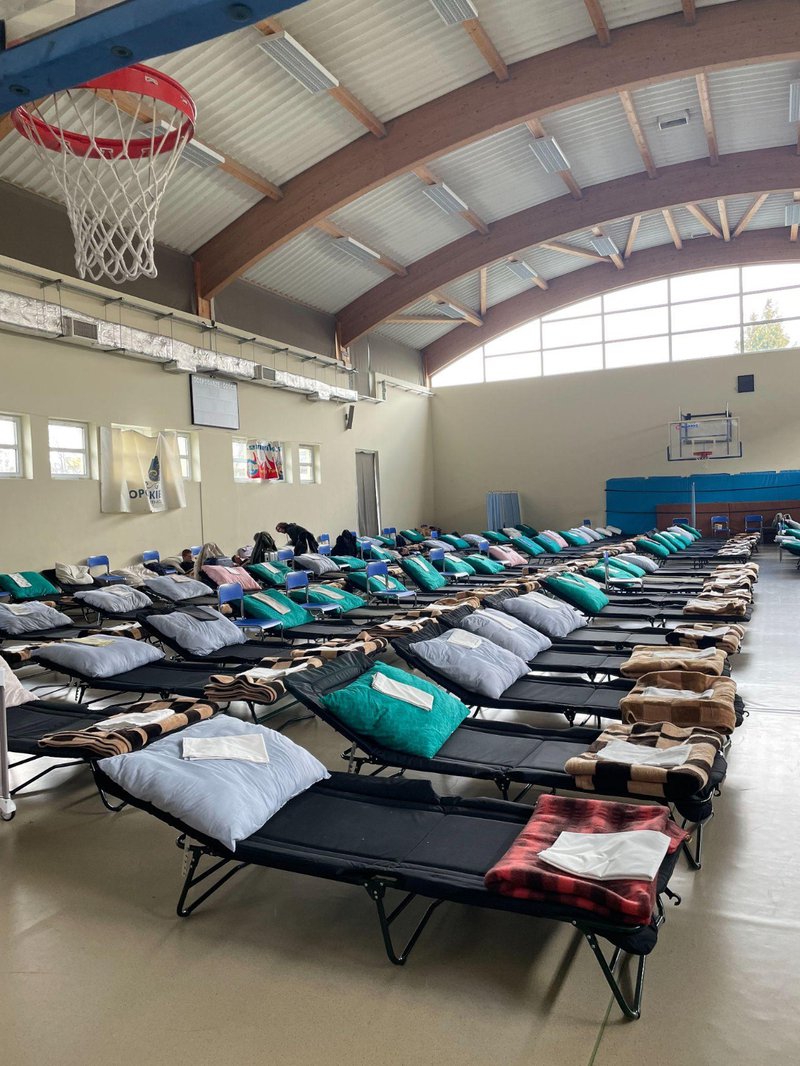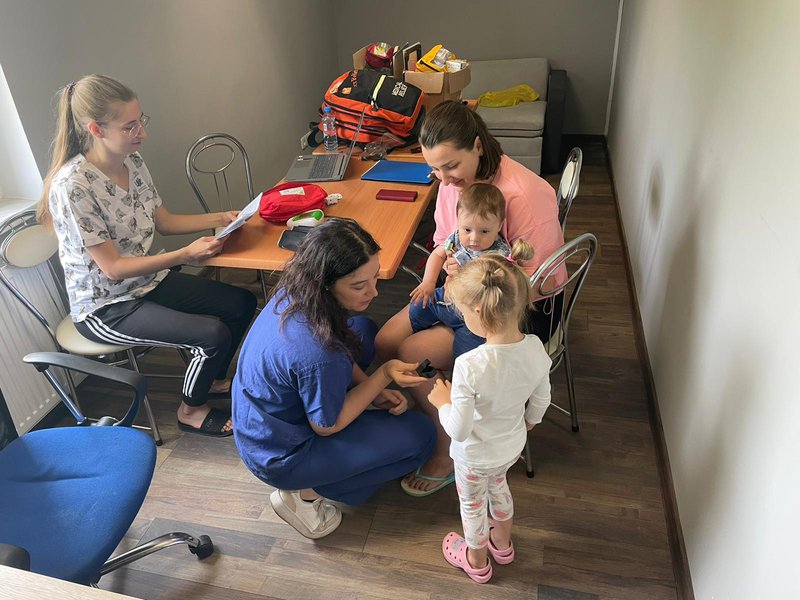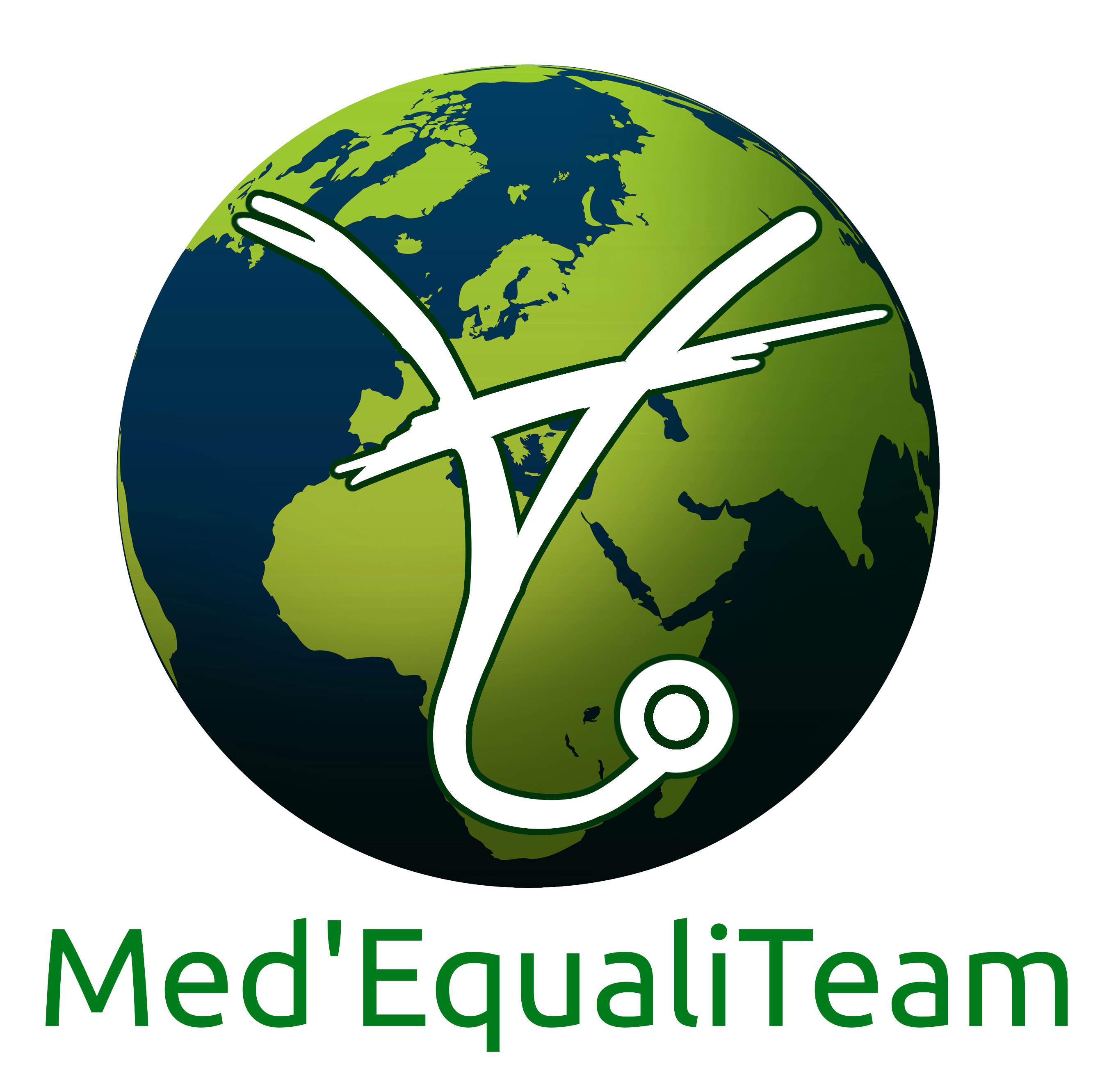Med’EqualiTeam – Poland
Context
Since the war in Ukraine began, more than 7.6 million people, mostly families consisting of women, children, and the elderly (men between 18 and 60 are banned from leaving Ukraine due to martial law), have been forced to leave their homeland, with greater than half crossing into Poland (UNHCR).
The presence of a sizeable Ukrainian community before the war, the heartwarming support of the Polish people, and generous European directives regarding access to asylum, education and work, have contributed to nearly 1.3 million Ukrainian refugees registering for protection in Poland. While this protection provides for essential services like the health care and education, it also comes with the responsibility to ensure these systems remain accessible despite the increased demand.

Border crossings by country (July 2022)

Number of Refugees Registered in Poland by Age and Gender (October 2022)
When Ukrainians first started crossing thePolish border, their acute needs were met at designated crossing points, transit centers and train stations. Local NGOs, the Red Cross and local and international volunteers quickly filled the gap. However, as the crisis shifted from acute to prolonged, many refugees were resettled in smaller, more remote accommodation centers around the country.
As a result, they have little to no access to outside humanitarian assistance, and the Polish community has struggled to keep up the same level of investment of their time and donations. Many who at first hosted families in their own homes are now feeling the financial strain, as monetary support from the government to Polish host families has ceased. Meanwhile, the many refugees still being housed in gyms, student resident halls and hotels, face an uncertain future.
Prior to the war, the Polish public health system was already depleted, a reality that has become more apparent in the months since. A confluence of factors, from the strain of COVID-19, a shift towards private care for those who can afford it, and the ever-increasing departure of doctors and nurses for opportunities abroad, has left the system in a vulnerable state.
While refugees no longer require the same level of emergency care as compared to the early days of the crisis, the public health system carries a large burden, and access to primary care remains a critical risk factor for many. The burden and associated risks are compounded by the ever-present threat of outbreaks of contagious diseases due to the lack of vaccination in the Ukrainian population and the high prevalence of multi-resistant tuberculosis, untreated chronic diseases, and mental health challenges.
The 'Opole' Project
On June 20th 2022, Med'EqualiTeam went to work providing free primary medical care to Ukrainian refugees in accommodation centers in the Opole Voivodeship, located in south-west Poland. The smallest and one of the more rural of the 16 administrative regions of Poland, the Opole Voivodeship is currently hosting nearly 30,000 Ukrainian refugees, either in centers or with Polish families.

Opole Voivodeship
Unlike our operation in Samos, which was embedded in one large refugee camp, the Opole project is centered around a mobile primary care unit - consisting of 1 senior doctor, 1 junior doctor (or medical student), 1 Ukrainian & Russian translator, and 1 admin/logistics volunteer - which travels to and sets up inside the various accommodation centers throughout the region, based on an ongoing assessment of greatest need.

One of the “transit centres”, Sokrates in Opole, where people stay only a few nights before moving to another centre in the region or another destination.
In the short time since we launched this project we have conducted hundreds of consultations, hosted international volunteers from around the globe, entrenched ourselves within the local community, and reached refugees residing in some of the remotest areas of the region. As the only medical NGO operating in the Opole Voivodeship, our operations are championed by the regional government, and we contribute actively to the joint WHO/UNHCR Health Sector and Emergency Medical Team activities.



End of the project in January 2023
Thanks to the support we have received and the hard work of our volunteers, we have been able to take care of many Ukrainian refugees in Poland and support them in different ways, providing health care but also transfer of disabled patients and guidance to access the health system. These aids have been important for them, as well as for supporting the Polish community which has been so welcoming since February 2022.
However, as the number of refugees coming from Ukraine has not been as high as expected for the winter, it made our continuous presence less necessary so we decided to end our project there. Before leaving, we made sure that our patients had all the necessary information and medication, as well as making sure the centres would know where to refer patients with special needs.
We would like to deeply thank all our partners for the past year and all the volunteers who helped on the ground or remotely ; the Opole voivodeship which welcomed us and trusted us for the medical care of the refugees hosted in their region, as well as HumanDoc Foundation, the centres Banderoza and Mudita for their admirable cooperation in the field, and the wonderful support of German Doctors e.V., Three Peas help make a difference and Heimatstern e.V.


